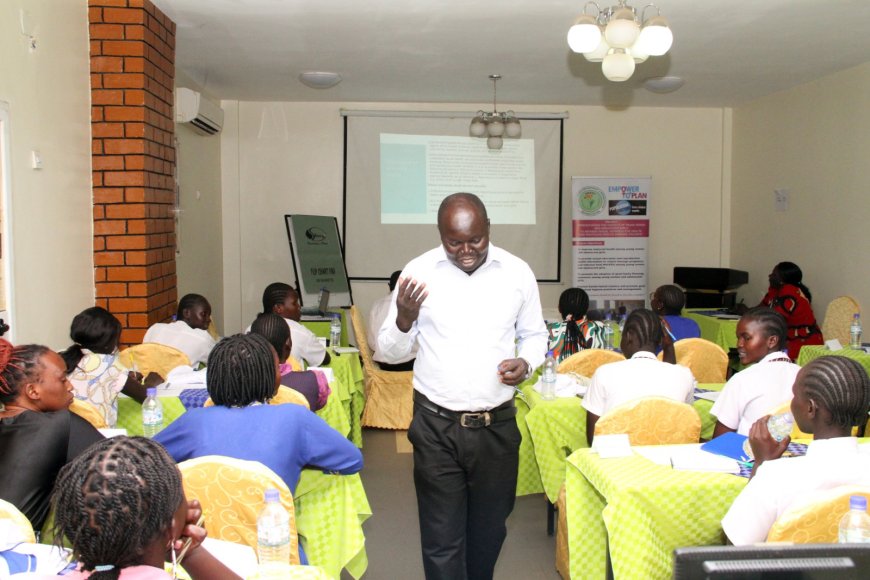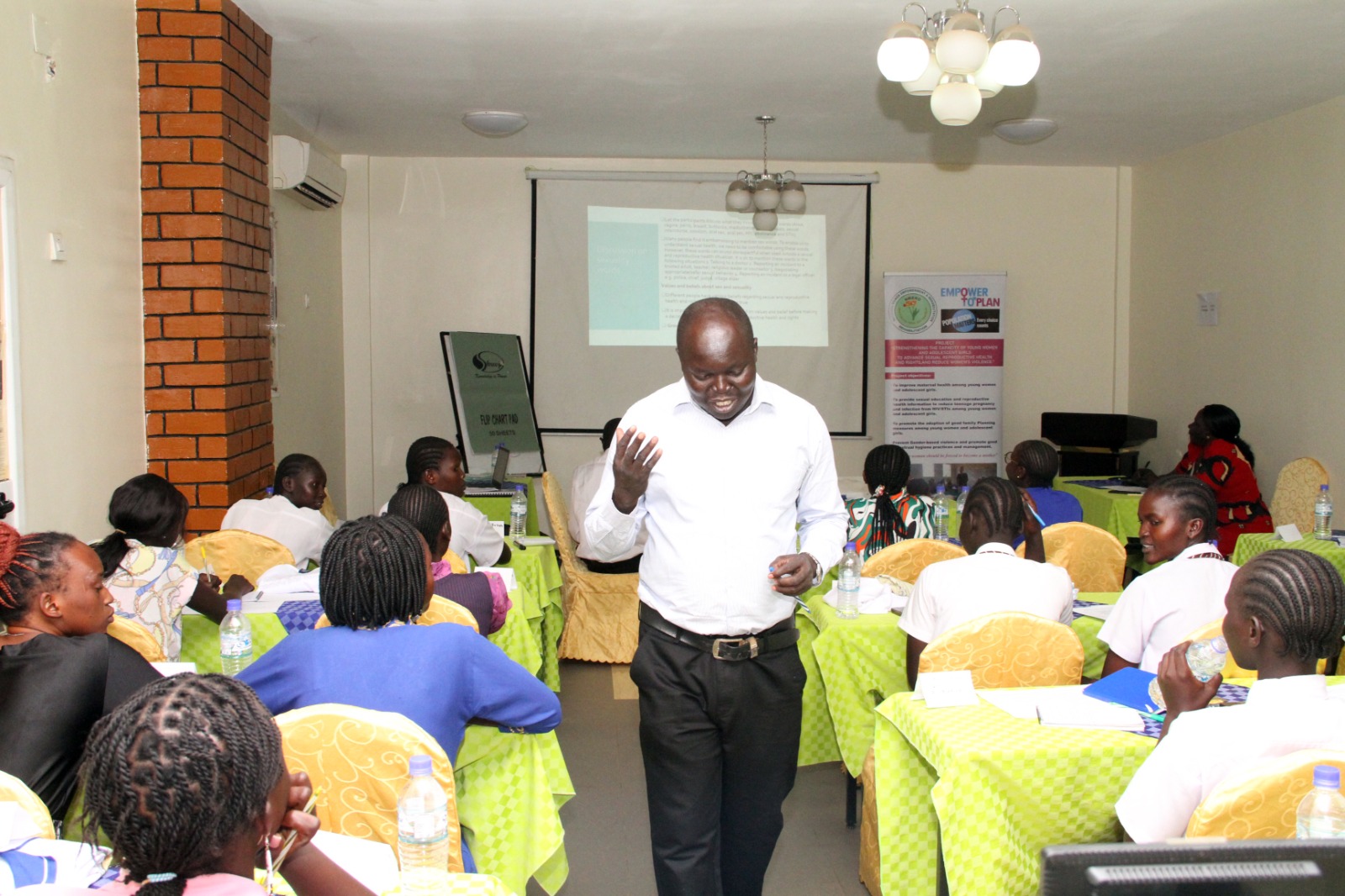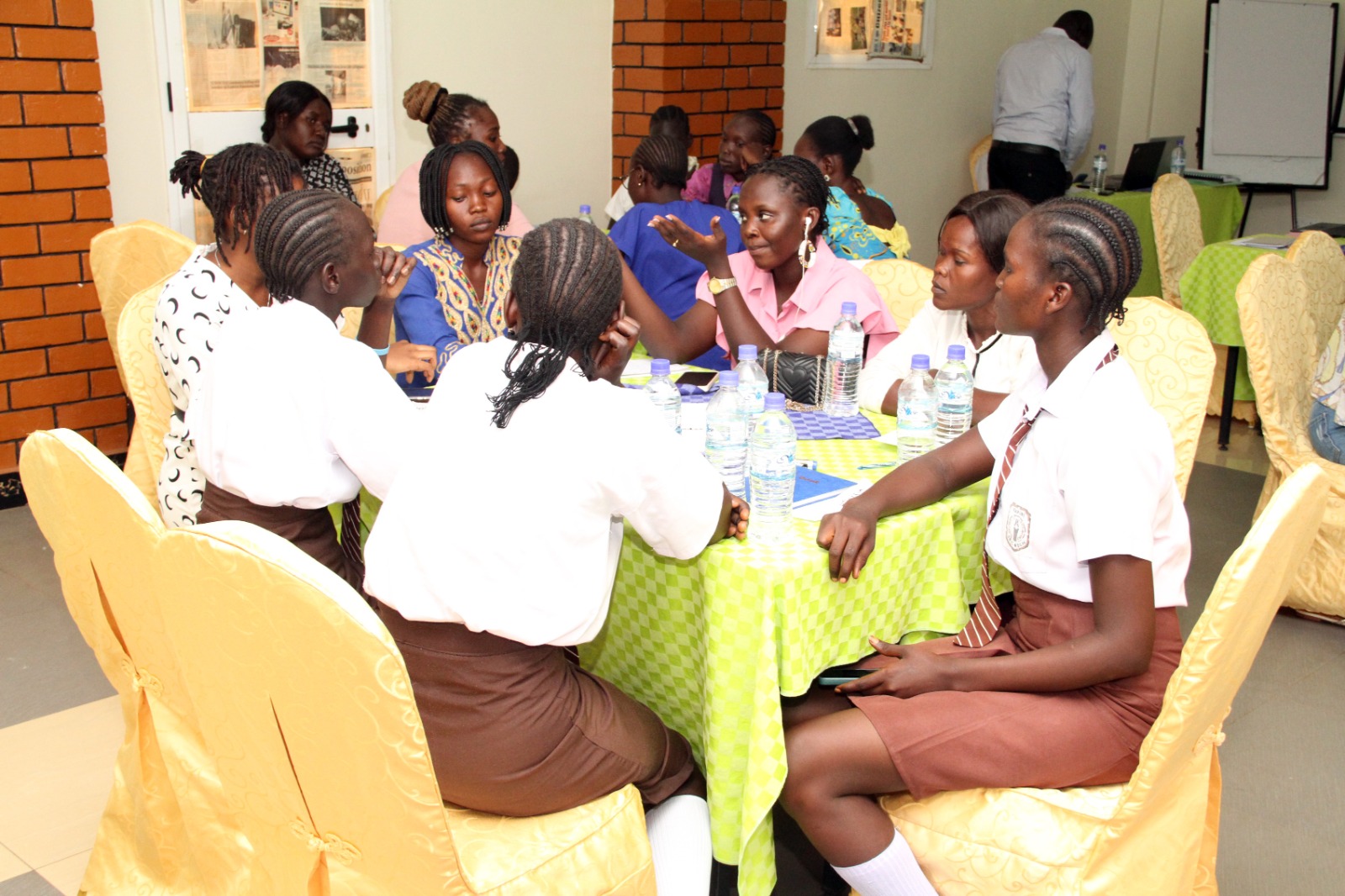Advancing education and equality in South Sudan
Advancing education and equality in South Sudan Population Matters

As we find ourselves at the midpoint of our partnership with the National Women Empowerment and Rehabilitation Organization (NWERO), we are delighted to share their remarkable strides forward amid the persistent challenges they confront.
The enduring Sudan crisis continues to have a profound impact on South Sudan. The conflict involving the Rapid Support Forces (RSF) and Sudan Armed Forces (SAF) has strained resources and added pressure to the response for Sudanese refugees and South Sudanese returnees in border centres like Renk as well as in the capital city, Juba.
A transit centre in Renk built for 3,000 people now has about 20,000 – most of whom are Sudanese refugees. There are people everywhere you walk, and the situation is getting worse and worse. The water and sanitation situation is just ripe for an outbreak of cholera. I’ve been in this work for 30 years and this is probably one of the worst situations I’ve seen.”
UNHCR, Briefing Notes, 7 November 2023.
The total number of people crossing into South Sudan since the Sudan conflict began is officially over 362,000, straining relief efforts. The crisis includes shocking reports of widespread sexual violence, prompting urgent calls for an end to gender-based violence, accountability for crimes, and support for survivors (UNHCR).
NWERO’s Commitment to Sustainable Development Goals (SDGs)
Nevertheless, NWERO remains unwavering in its commitment to collaborate with women, adolescents, and the broader community to implement vital socio-economic community development initiatives. These initiatives revolve around gender justice, the prevention and response to gender-based violence (GBV), and sexual and reproductive health and rights (SRHR).
Training Session for Adolescent Girls and Young Women
In the past three months, with the support of Empower to Plan, NWERO successfully conducted a comprehensive training session for 21 adolescent girls and young women in Juba. Through engaging sessions, group activities, and presentations, NWERO helped deepen participants’ understanding of SRHR, family planning, sexually transmitted infections (STIs), and GBV, addressing barriers and fostering empowerment.

One trainee, who had experienced pregnancy during her time in school, shared that the training had been transformative for her. She expressed that the sessions helped her comprehend the concepts of adolescent sexual and reproductive health, including GBV.
My parents didn’t accept me when they found out I was pregnant. I was homeless, and I even tried to end my life. Thankfully, a friend helped me. I understood that getting pregnant doesn’t mean my life is over. Now, I’m eager to finish my education and move forward.”
A trainee who was a part of a training session held by NWERO

Adolescent Health Club in Secondary School
Furthermore, NWERO has established an adolescent health club in a secondary school in Juba, addressing high-risk behaviours contributing to STIs and teenage pregnancies, posing threats to both education and health. The club also focuses on raising awareness about adolescent
SDGs, Targets, and Indicators
-
SDG 5: Gender Equality
- Target 5.1: End all forms of discrimination against all women and girls everywhere
- Target 5.2: Eliminate all forms of violence against all women and girls in the public and private spheres, including trafficking and sexual and other types of exploitation
- Indicator: The article mentions the prevention and response to gender-based violence (GBV) as one of the initiatives implemented by NWERO.
-
SDG 3: Good Health and Well-being
- Target 3.7: Ensure universal access to sexual and reproductive health-care services, including for family planning, information, and education, and the integration of reproductive health into national strategies and programs
- Indicator: The article highlights NWERO’s efforts in conducting training sessions on sexual and reproductive health and rights (SRHR), family planning, and sexually transmitted infections (STIs) for adolescent girls and young women.
-
SDG 4: Quality Education
- Target 4.7: By 2030, ensure that all learners acquire the knowledge and skills needed to promote sustainable development, including, among others, through education for sustainable development and sustainable lifestyles, human rights, gender equality, promotion of a culture of peace and non-violence, global citizenship, and appreciation of cultural diversity and of culture’s contribution to sustainable development
- Indicator: The article mentions the establishment of an adolescent health club in a secondary school in Juba to address high-risk behaviors contributing to STIs and teenage pregnancies, promoting awareness about adolescent sexual and reproductive health.
Table: SDGs, Targets, and Indicators
| SDGs | Targets | Indicators |
|---|---|---|
| SDG 5: Gender Equality | Target 5.1: End all forms of discrimination against all women and girls everywhere | The prevention and response to gender-based violence (GBV) as one of the initiatives implemented by NWERO. |
| SDG 3: Good Health and Well-being | Target 3.7: Ensure universal access to sexual and reproductive health-care services, including for family planning, information, and education, and the integration of reproductive health into national strategies and programs | NWERO’s efforts in conducting training sessions on sexual and reproductive health and rights (SRHR), family planning, and sexually transmitted infections (STIs) for adolescent girls and young women. |
| Target 4.7: By 2030, ensure that all learners acquire the knowledge and skills needed to promote sustainable development, including, among others, through education for sustainable development and sustainable lifestyles, human rights, gender equality, promotion of a culture of peace and non-violence, global citizenship, and appreciation of cultural diversity and of culture’s contribution to sustainable development | The establishment of an adolescent health club in a secondary school in Juba to address high-risk behaviors contributing to STIs and teenage pregnancies, promoting awareness about adolescent sexual and reproductive health. |
Behold! This splendid article springs forth from the wellspring of knowledge, shaped by a wondrous proprietary AI technology that delved into a vast ocean of data, illuminating the path towards the Sustainable Development Goals. Remember that all rights are reserved by SDG Investors LLC, empowering us to champion progress together.
Source: populationmatters.org

Join us, as fellow seekers of change, on a transformative journey at https://sdgtalks.ai/welcome, where you can become a member and actively contribute to shaping a brighter future.







